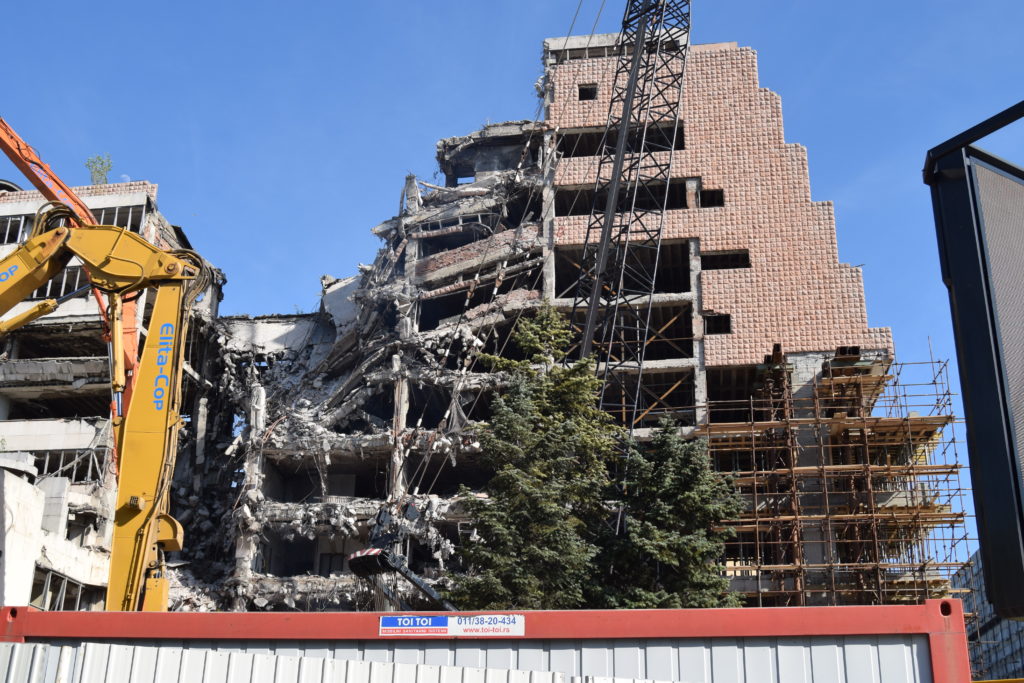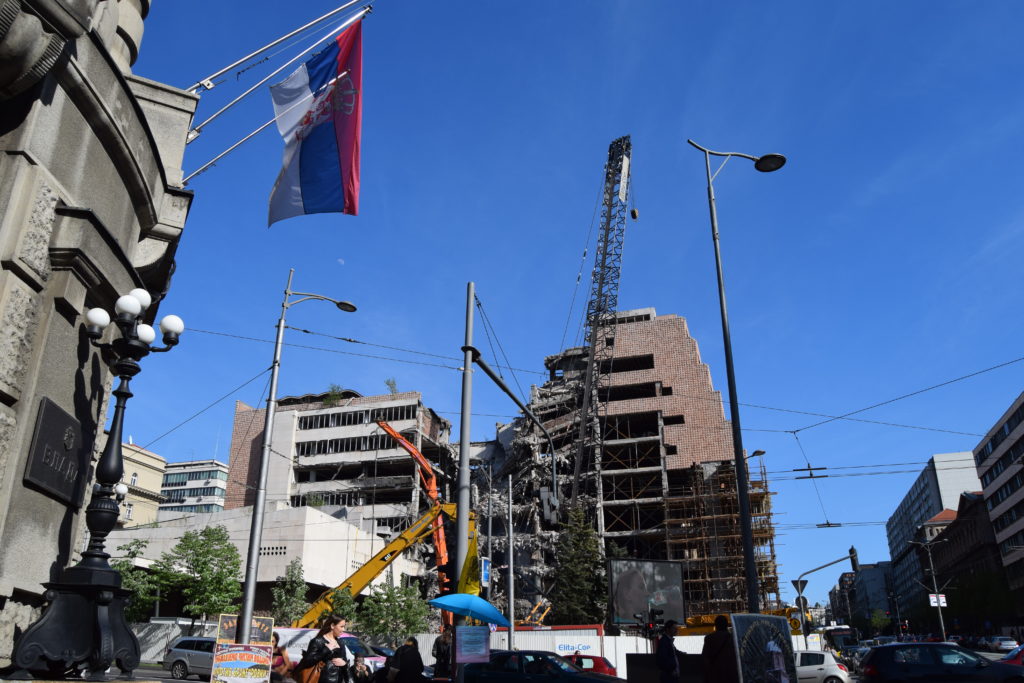
Today Serbia marks the 19th anniversary since the start of the NATO bombing campaign against Serbia, (the former Federal Republic of Yugoslavia (SRJ)).
In 2016, I left the UK to follow the Refugee Crisis coming out of Syria, fleeing across Europe in the hope of safety and freedom, and on my journey I travelled through Serbia, spending over a month in its capitol, Belgrade. As well as covering the refugee crisis, I made time to meet with Serbian Government officials, military and went to the site of Serbia’s old Ministry of Defence Building in the heart of the Old City, surrounded by apartments and office block, full of civilians, as site of what still stands of a bombed out building surrounded by scaffolding, a stark reminder of the war that raged across the Balkans after the break up of Yugoslavia and that both sides committed acts of crimes against humanity.
The west till now have been very quick to call Serbian Commanders of the time war criminals, but the bombing of Belgrade, surely constitutes a war crime, and a reminder that we in the west are not perfect.

Today, I’m glad to see friendship and partnership between countries like the UK & US with Serbia, our military’s regularly train together, each year more and more western tourists discover the beauty of Serbia and its stunning historic city Belgrade. In my time there, I made many friends in Belgrade that will be friends for ever. A city I could return to more often.
The decision to attack Yugoslavia was the first in history to be made without the approval of the UN Security Council.
The bombing lasted 79 days and resulted in at least 2500 deaths and more than 12,500 injuries.
The attacks on Serbia started on the 24th March 1999, and the last one took place near Kosovska, Kamenica on the 10th June at 13:15 CET.
The death toll among the military and police forces reached 1,008, including 659 soldiers and 349 policemen. Around 6,000 civilians were injured, including 2700 children.
The total damage was estimated at dozens of billions of dollars. NATO has never disclosed its losses.
The decision to attack Yugoslavia was the first in history to be made without the approval of the UN Security Council, and the order was given to US General Wesley Clark, the allied commander at the time, by NATO Secretary General Javier Solana.
Yugoslavia was attacked under the pretext of failure of the talks on the future status of the southern Serbian province of Kosovo, held in Rambouillet and Paris.
After the decision on non-acceptance of foreign troops was ratified by the Serbian parliament, which proposed the UN forces to monitor a peaceful resolution of conflicts in Kosovo, NATO launched air raids on the 24th March 1999 at 19:45 CET.
Facing mounting diplomatic pressure, NATO ended the bombing with the signing of the Military Technical Agreement in Kumanovo on the 9th June 1999, and the last missiles fell near Kosovska, Kamenica on the 10th June at 13:30 CET.

Comments on On This Day | One Of NATOs Darkest Hours - The Bombing Of Belgrade